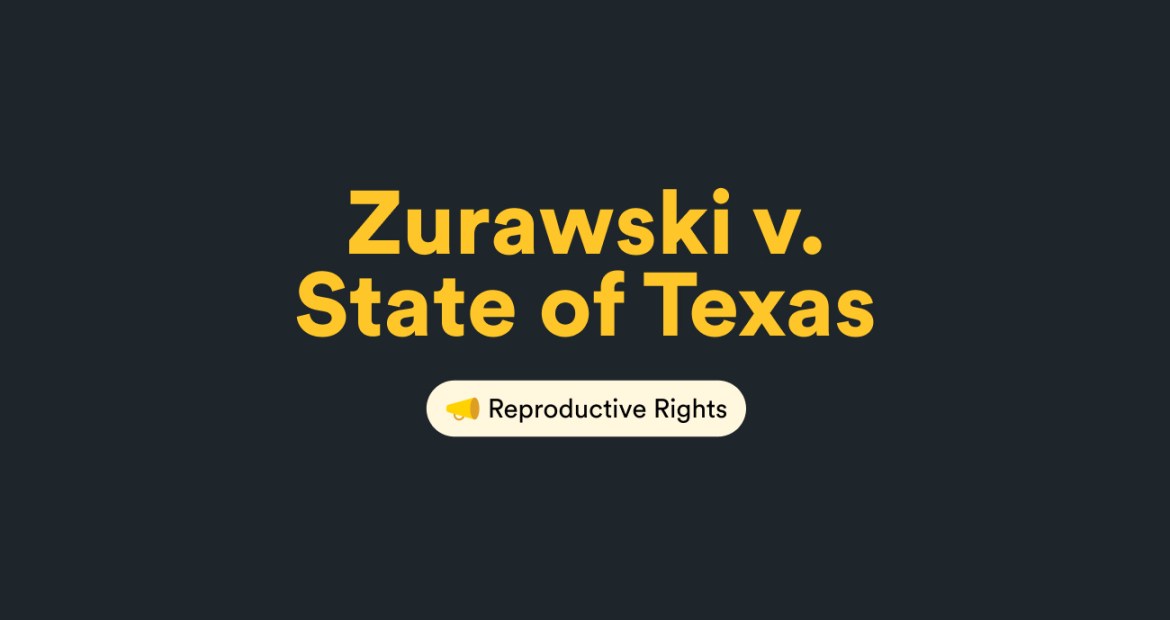In 2022, the U.S. Supreme Court made the devastating decision to restrict abortion rights for millions across the country. At the time, Bumble Inc. responded with our commitment to a fundamental principle: Abortion is healthcare, and healthcare is a human right. Now, we’re taking action in the face of this erosion of reproductive rights in our home state of Texas.
On November 20, 2023, Bumble Inc. became the first business to sign on to an amicus brief in Zurawski v. State of Texas, a groundbreaking lawsuit filed by human rights advocacy nonprofit the Center for Reproductive Rights. We join an amicus brief supporting 22 plaintiffs, including 20 pregnant women who were denied medical procedures in Texas despite severe, dangerous complications that put their health, fertility, and lives at risk. Dozens of companies statewide have since signed on.
The suit seeks to clarify the extent of the state’s medical emergency exception to abortion bans, which has caused confusion among pregnant people and doctors alike across Texas. The state’s particularly hostile reproductive rights landscape has made physicians afraid to rely on the exception—and caused both mental anguish and physical harm to patients.
By signing this brief, Bumble reaffirms our commitment to gender equality, a value central to our mission. Without access to abortion and other reproductive healthcare necessary to maintain bodily autonomy, we’ll never be free or equal. The safety, privacy, and freedom to make family planning decisions are critical to equality for all. That includes equitable access to abortion care.
We also aim to underscore that ambiguity in abortion laws and restricted access to reproductive healthcare are having a demonstrably negative effect on the Texas economy, business landscape, and society as a whole. We can’t possibly foster a diverse, inclusive environment—one that encourages talent and innovation—if the rights of our employees and customers alike are compromised. According to the brief, a surge of companies, workers, and students are choosing not to come to Texas, or to leave, as a result of the state’s complicated, retrograde laws.
This isn’t the first time Bumble has sought to affect change in Texas, where the company was founded in 2014. We worked with legislators on both sides of the aisle in our home state to help pass a law making the unsolicited sending of nude images—”dick pics,” colloquially—a Class C misdemeanor. In the spring of 2019, our founder Whitney Wolfe Herd testified in front of both the Texas State House and Senate. The measure—House Bill 2789—passed the Texas Senate unanimously in May of that year, and became law in fall 2019. Now, the sending of a lewd photo without the recipient’s consent is punishable by a fine of up to $500 in Texas. Bumble has since worked with legislators to introduce additional state-level bills in California, New York, Wisconsin, and Virginia. We also worked with politicians and organizations in the U.K. to help make “cyberflashing” a criminal offence under the country’s Online Safety Bill.
The Texas Supreme Court has set oral argument in Zurwaski v. State of Texas for November 28. To learn more about the case, check out the Center for Reproductive Rights’ comprehensive coverage.


Social Media